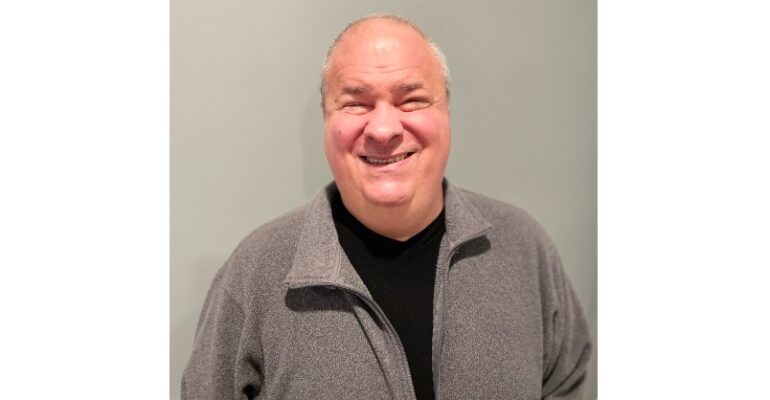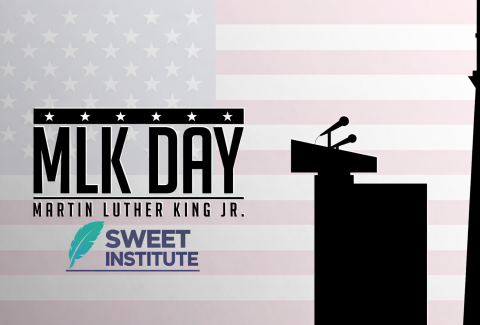Paul Selino: A Life in Service, Advocacy, and Resilience
Paul Selino’s journey into social work is a testament to resilience, adaptability, and a passion for serving others. With over three decades of experience, Paul has navigated the evolving landscape of social work with unwavering commitment, leveraging his skills to support individuals and families through life’s challenges. His story is one of professional dedication and personal triumph over adversity.
A Journey to Social Work
Paul’s career in social work began unexpectedly. Starting as an accounting major, he soon found himself drawn to helping others. “I was always gravitating towards working with people,” Paul reflects. This inclination led him to pivot toward psychology and philosophy, eventually earning a bachelor’s degree in psychology from SUNY and a Master of Social Work from Fordham University in 1994.
Initially considering guidance counseling, Paul recognized the broader opportunities in social work. “I saw how wide-ranging the field was,” he shares. This realization set the stage for a career defined by versatility and a deep understanding of human behavior. His early interest in psychodynamic theory laid the foundation for his empathetic and trauma-informed approach, emphasizing the impact of past experiences on present circumstances.
Early Career and Foundations
Paul’s first professional role was at Stony Lodge Hospital, a private psychiatric facility, where he served as Supervisor of Admissions for 12 years. This role offered a front-row seat to the complexities of mental health care. Simultaneously, his formative internship experiences shaped his clinical and advocacy skills.
One standout internship involved working with HIV-positive individuals experiencing homelessness and addiction. “This was the early 1990s,” Paul recalls, “when HIV and AIDS were just becoming widely understood, with all the stigma that came with it.” Leading group counseling sessions for individuals facing such significant challenges—often fresh out of prison or grappling with trauma—was baptism by fire. “I was 25 years old, moderating groups with people asking, ‘Who the heck are you to help me?’ It was tough, but it built my resilience.”
Paul also worked as a rape crisis counselor and engaged in advocacy at independent living centers. These experiences deepened his understanding of systemic barriers and the importance of empowering individuals to navigate them.
A Person-Centered Philosophy
Paul’s work is rooted in a person-centered, trauma-informed approach. Whether assisting families navigating child welfare systems or supporting parents in crisis, he emphasizes trust-building and empathy. “You have to meet people where they are,” Paul explains. “You have to step back, listen, and gain their trust before you can make progress.”
He recalls instances where parents initially resisted his guidance, only to later express gratitude for his persistence and care. “Those moments of recognition, though rare, remind you of the impact you’ve made,” he says.
The SWEET Institute: A Catalyst for Growth
Paul credits his ongoing involvement with the SWEET Institute as pivotal in honing his skills. “The trainings helped me see that I was already integrating different approaches—whether it was trauma-informed care, CBT, or behavioral modification,” he notes. This comprehensive perspective has enhanced his ability to tailor interventions to meet the unique needs of each person he serves.
Navigating Personal Adversity
Paul’s professional achievements are even more remarkable given the personal challenges he has faced. Born with low vision, his eyesight gradually deteriorated due to retinal detachment, corneal complications, and glaucoma, eventually leading to blindness. Despite these obstacles, Paul adapted by mastering assistive technologies, from screen-reading software to dictation tools.
His journey through academia was fraught with challenges, including initial rejections for internships due to his disability. Fordham University’s disclosure of his blindness to potential placements without his consent was a turning point. “I had to educate others about how I work,” Paul recalls. “It was about advocating for myself and demonstrating my abilities.”
This experience of self-advocacy has informed his work, especially in teaching others to assert their needs and rights. “Just like I had to educate people about my abilities, I encourage clients to take control and educate others about theirs.”
A Legacy of Service
Reflecting on his career, Paul emphasizes the importance of growth and adaptability in social work. “It takes time to use all the tools in the social work toolbox,” he says. His journey underscores the value of perseverance, empathy, and a commitment to lifelong learning.
Paul Selino’s story is not just about overcoming personal and professional challenges—it’s about the profound impact one person can have when they dedicate their life to understanding and uplifting others. His legacy is a powerful reminder that resilience, advocacy, and compassion are the cornerstones of meaningful social work.
Paul Selino is a seasoned social work professional with over 30 years of experience working with adolescents and young adults facing mental illness and disabilities. A resident of Harrison, New York, Paul holds a Bachelor’s Degree in Psychology from SUNY Purchase and a Master’s in Social Work (LMSW) from Fordham University. Despite being blind, Paul has built an accomplished career dedicated to advocacy, empowerment, and providing quality care for vulnerable populations. His extensive experience includes roles as a substance abuse counselor, disability advocate, crisis intervention counselor, and supervisor of admissions in an acute psychiatric setting.
Most recently, Paul served as the Medical Social Worker & Fiscal Affairs Manager at St. Christopher’s Residential Treatment Center, where he oversaw medical case management for over 150 adolescents. He excels in Medicaid/Managed Care, welfare programs, and community resources, and works to ensure the swift and cost-effective delivery of medical care.
Beyond his professional work, Paul is passionate about advocacy and volunteers in his local church’s Parish Health Ministry, furthering his commitment to serving others. His unwavering dedication to improving the lives of individuals with disabilities and mental health challenges makes him a respected leader in his field.







